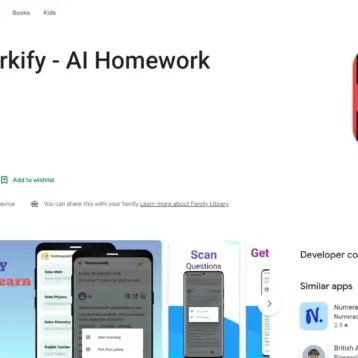Learning Management Systems may have seen the largest growth out of all the software markets that exploded following the COVID-19 pandemic.
Several of the massive changes in today’s workplace have been expedited by the Covid-19 pandemic. These are being mirrored in the employees’ learning demands.
Technological advances in e-learning systems are allowing the construction of new and exciting learning environments, as well as, deeper training engagement. It’s also becoming increasingly evident that highly engaged employees have the potential to transform a company.
Therefore, the number of people using LMS is steadily increasing. As the amount of users has grown, LMS providers have had to adapt new learning methodologies and trends in order to improve the effectiveness of their products as training tools.
LMS nowadays, like the Learn LMS, are capable of much more than merely delivering and tracking e-learning content. The following are some new trends that LMS providers are incorporating into their products to boost learners’ learning and effectiveness:
1. Microlearning is going to be extensively adopted.
Microlearning is the technique in which a lesson or subject is broken down into little units or chunks in order to make learning more effective and understandable for the learner.
Learner productivity and engagement were shown to be significantly lower in lengthy courses compared to short courses when learners began to choose mobile devices for consuming learning material.
Because the learner’s mind is focused on achieving a reward quickly, course makers discovered that short courses offer considerably higher engagement and productivity. As a result, LMS providers have started to focus on microlearning.
Microlearning has several advantages-
- A higher completion rate.
- It enables educators to give the lesson in a more organized, step-by-step manner.
It’s possible to use it for on-the-go training.
- The incorporation of microlearning with the LMS allows the learner to view the course from any location.
- In contrast to extensive and long-duration courses with lower completion rates, microlearning is more cost-effective.
- Increases engagement by using high-impact training tactics such as videos and presentations.
2. Augmented & Virtual Reality will assist in increasing interactivity.
Interactive learning, without a doubt, increases learner engagement with the course and is effective in practically all educational, vocational, and corporate training programs.
Many corporations and businesses want a quick broadcasting LMS platform that is simple to use for their employees. AR and VR are just two of several multi-layered ways that may be employed to improve the learning experience and make it more appealing to all users.
With Augmented reality and Virtual reality abilities, modern LMS have gained a wider audience in the global market over the last year, significantly improving the stream rate. The primary motivation for incorporating AR/VR technology into learning management systems is to improve learning content performance and to make it much easier for the student to comprehend the topics.
The following are some of the advantages of combining AR/VR with LMS:
- Ends note-taking and tick-box learning.
- Increases user interaction
- Complex concepts are simplified.
- This simulation mimics real-life situations.
3. Learning analytics will be taken to new heights.
Decision-makers in 2022 will seek LMS featuring built-in big data analytics to enable adaptive learning by offering individualized educational content to each learner. Modern Learning Management Systems (LMS) already aid organizations in tracking their employees’ learning habits as well as key performance indicators (KPIs). In order to unlock corporate success, learning analytics allow business managers to review KPIs, provide relevant feedback to employees, improve their abilities, and measure performance impact.
4. AI-Enabled learning management systems.
For quite some time, artificial intelligence, or AI, has been used in the education industry. It is increasingly being used in learning management systems and platforms to provide educators and learners with instant access to relevant information and knowledge.
The following are some of the key advantages AI brings to learning management systems:
- Enhanced content relevance
- Online tutoring
- Individualized learning strategies
- Content that is easy to comprehend
With the benefits of AI in online learning reaching new heights practically every day, numerous IT leaders are entering the education industry to maximize profits and expand their influence in the sector by launching highly advanced LMS solutions.
5. The Content Manager will become more sophisticated.
Many businesses maintain a content repository where their employees may find the training materials whenever they need them. Smart content curation is supported by LMS as a realistic approach to motivating and retaining employees. Content is supplied according to specific job functions and learning recommendations in modern LMS, similar to what happens on streaming platforms like Netflix. This is why content curation is crucial. Individuals get to choose modules from their instructors or managers to pursue their learning path. This helps them to boost their overall training efficiency, while also improving their performance and bridging skill gaps.
6. Gamified learning will be in high demand.
Trainers have long struggled with knowledge retention because many online learners lose interest in the course and just never finish it. Gamification of the learning experience was used to tackle this problem. In 2022, gamification will continue to be one of the most popular eLearning and LMS trends.
With the need to make education much more beneficial and entertaining for learners, game-based learning would continue to rise in popularity.
Gamified learning is excellent in increasing knowledge comprehension and retention in addition to keeping participants motivated and engaged. Most educators will look for methods to incorporate game concepts and components into virtual classrooms while designing learning experiences. LMS that gamify the learning by delivering popular alternatives like virtual currency and badges will be desired by decision-makers. Many instructors, on the other hand, would opt for a learning management system (LMS) that enables them to incorporate successful classroom gamification techniques.
Conclusion
LMS provides unmatched reliability, expertise, and dedication in the deployment and management of training material. Ed-tech is rapidly progressing, thanks to the aforementioned LMS trends that provide productive, innovative, and exciting solutions. The e-learning and LMS trends shift at regular periods. To choose an e-learning system that will be helpful and relevant for a longer period of time, decision-makers must consider both LMS projections and trends in 2022.










